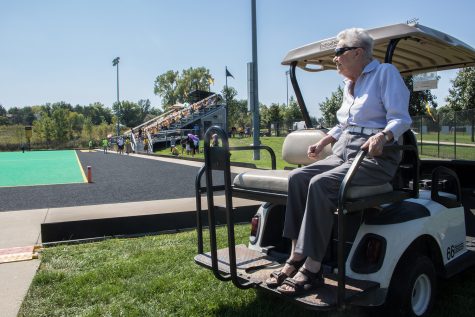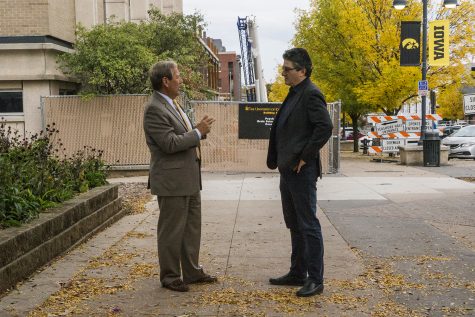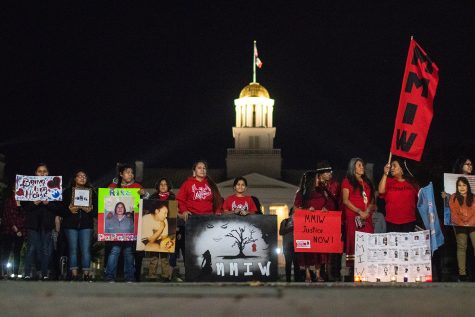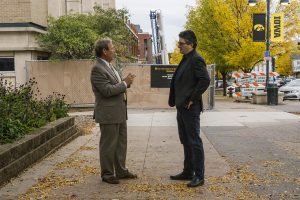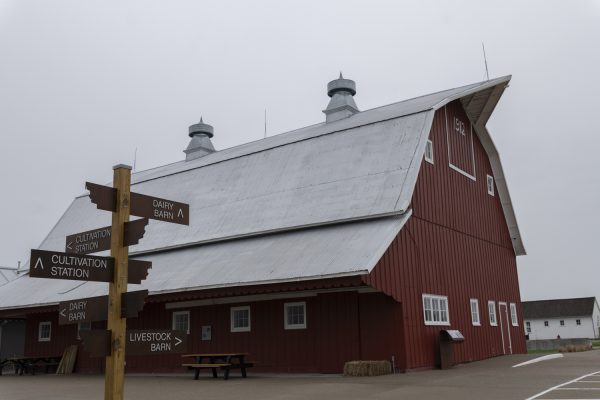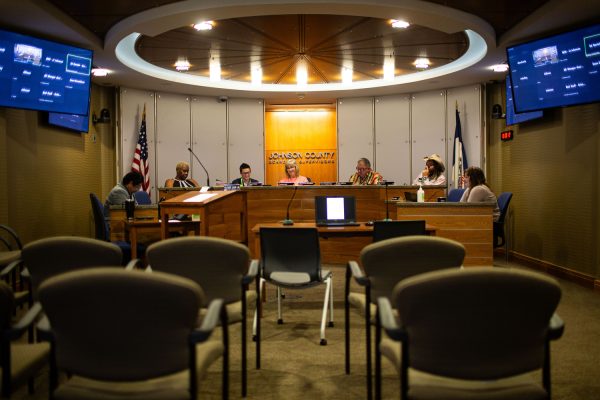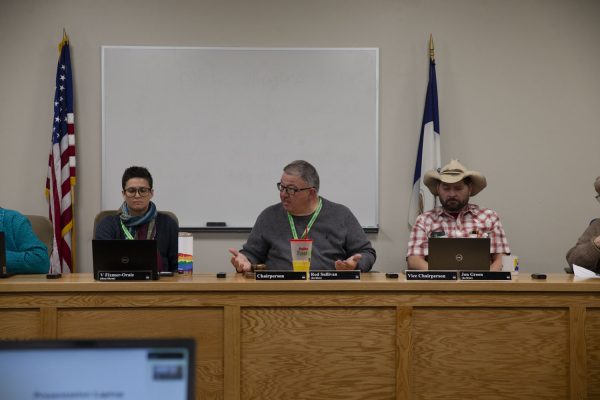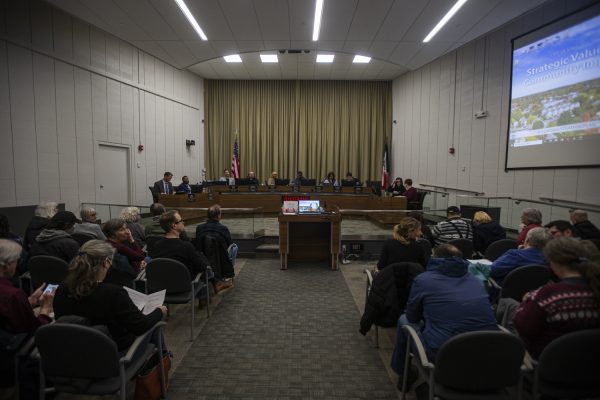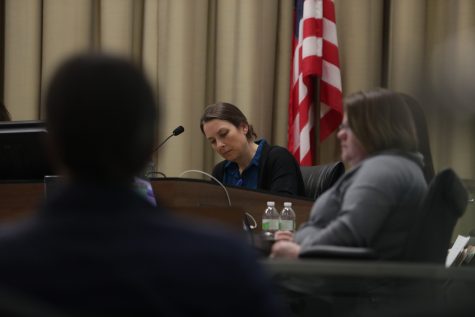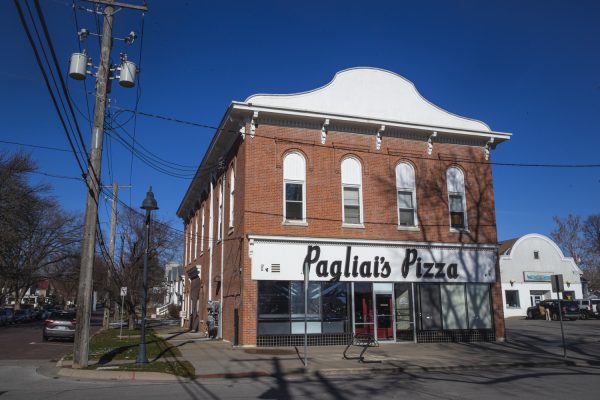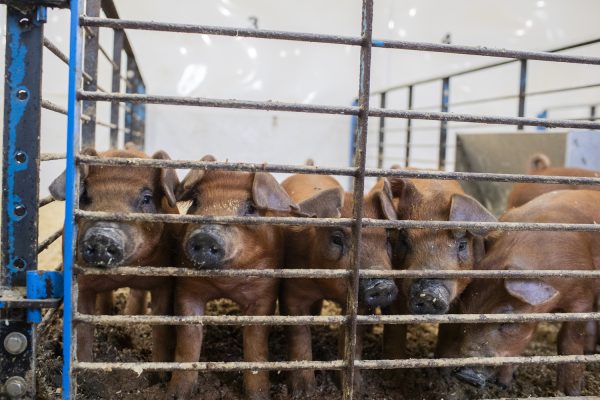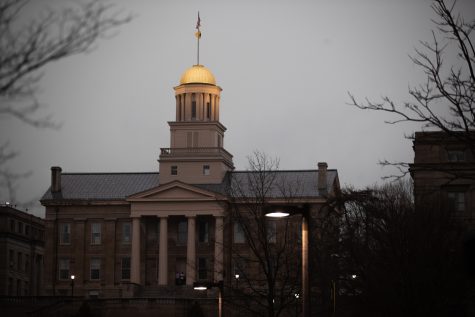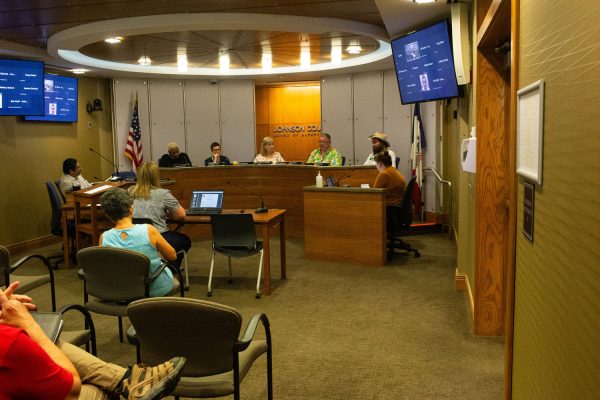West Branch farm donated to Sustainable Iowa Land Trust
A couple in West Branch has donated their farm to the Sustainable Iowa Land Trust, an organization that promotes sustainability and local food production.
Suzan Erem (third from left) and Paul Durrenberger (fourth from left) donated their farmland to the Sustainable Iowa land Trust.
October 9, 2018
A local couple donated their farm to the Sustainable Iowa Land Trust at a ceremony on Oct. 4 at the Iowa City Public Library, 123 S. Linn St. The 63-acre farm near West Branch was the gift of Suzan Erem, the executive director of SILT, and her husband, Paul Durrenberger.
SILT began in January 2015 after a retreat in December 2014 with 25 important figures in the realm of sustainability and agriculture, Erem said. SILT allows young and aspiring sustainable farmers to lease or purchase land at reduced prices.
“Our mission is to protect land and grow healthy food,” she said.
Sustainability efforts are central to SILT’s mission. The organization does not allow row crops to be planted on steep slopes, Erem said, which reduces erosion. The group also encourages reducing synthetic chemicals in farming.
SILT also encourages on local food production, focusing on the production of fruits and vegetables rather than the corn and soybeans that are common on Iowa farms. SILT President Stuart Valentine said during the ceremony on Oct. 4 that Iowa once produced 90 percent of the food consumed in the state. Now, he said, Iowa imports 90 percent of its food.
“We need to rebalance the equation into a more regenerative agriculture model,” he said.
Johnson County Supervisor Mike Carberry, who was present at the ceremony, said that local food is a major priority for the supervisors. They have taken action to promote local farming and recently hired a local-food coordinator for the county.
The supervisors are also working on starting an incubator program at the historical Poor Farm, where aspiring farmers can learn the trade. There’s not a lack of enthusiasm for farming in the county, Carberry said, but rather a lack of access.
“There are a lot of young people, Iowa students included, who would like to get into farming,” he said.
RELATED: County department to reconsider policy in face of agin-farmer crisis
The major obstacle that aspiring farmers face in Iowa is access to farmland, Carberry said. It is especially difficult in Johnson County, which has the second highest land cost in the state. The county also has a rule stating that properties under 40 acres cannot be classified as farms, making it more difficult for people to start farms without large amounts of money.
Carberry said the supervisors are working on addressing the situation, specifically the 40-acre rule.
The land donated by Erem and Durrenberger became the sixth farm managed by SILT, with a total of 478 acres of sustainable farmland, Valentine said.
The land is open to any farmer interested in applying for a lease. Erem said there is no set number of farmers allowed on the land at once, but she envisions it will be three to five people.
Chosen applicants will be offered a three-year lease, with a 20-year lease offered after the first one expires. Farmers won’t get charged for the land, Erem said, but will pay $500 a month for the facilities on the land for the first three years. Under the 20-year lease, tenants will pay taxes and insurance, plus 10 percent of that for administration.
“The whole idea is to let young people who have the energy but not the money plow the few financial resources they have into the actual farming operation,” she said.




